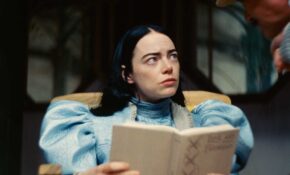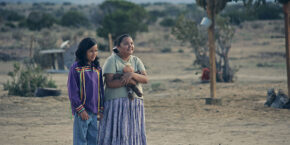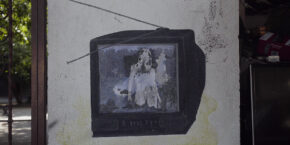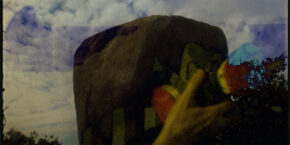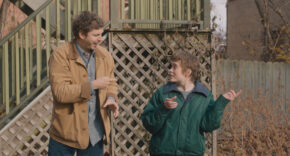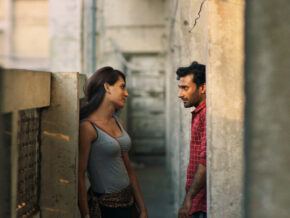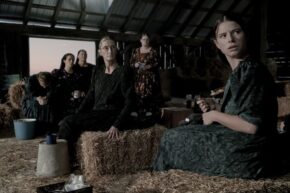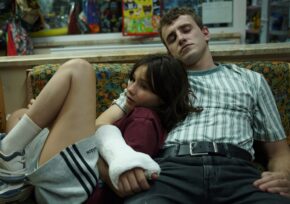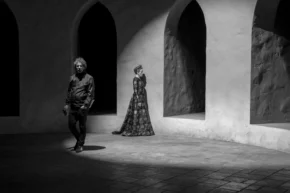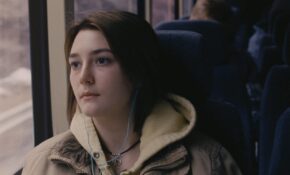US
The Killer (David Fincher, US)
By Adam Piron | 01/17/2024 | CS97, Currency, From Cinema Scope Magazine
Clocking in at a clean 47 seconds, the title sequence in The Killer sets something like a metronome for David Fincher’s latest effort.
Read More → Killers of the Flower Moon (Martin Scorsese, US)
By Robert Koehler | 01/17/2024 | CS97, Currency, From Cinema Scope Magazine
The extreme thoroughness, subtlety, and thought invested in this project indicate that, as Scorsese moves into his Joe Biden years, he has evolved into a more nuanced, more complex film artist.
Read More → Menus-Plaisirs – Les Troisgros (Frederick Wiseman, US)
By Jay Kuehner | 01/17/2024 | CS97, Currency, From Cinema Scope Magazine
Given the stylistic consistency yet markedly disparate subject matter of his vast oeuvre to date, it is curious to consider what, if anything, constituted the precedent for his latest film, Menus-Plaisirs – Les Troisgros, a typically protracted look at an historically family-run restaurant near Lyon.
Read More → Poor Things (Yorgos Lanthimos, US/UK/Ireland)
By Deragh Campbell | 01/17/2024 | CS97, Currency, From Cinema Scope Magazine
...the premise of Poor Things—both in Alasdair Gray’s novel and the screenplay adapted by Tony McNamara—arrives as a potentially poignant advancement of Frankenstein’s Monster.
Read More → TIFF 2023 | Frybread Face and Me (Billy Luther, US) — Discovery
By Ally Oman | 09/05/2023 | Cinema Scope Online, TIFF 2023
“My grandmother once told me in Navajo storytelling, symbols mean more than facts. And time means nothing at all.” What follows this declaration in Billy Luther’s narrative debut Frybread Face and Me inches the film away from that promise of experimentation towards a straight-forward coming-of-age story; still, the tension between Luther’s experience as a documentary filmmaker and the fictional story of a Navajo pre-teen’s summer spent on the Rez generates at least the potential for an alternative narratological approach.
Read More → TIFF 2023 | Nowhere Near (Miko Revereza, Philippines/US) — Wavelengths
By Michael Sicinski | 09/05/2023 | Cinema Scope Online, TIFF 2023
The third feature film by Filipino experimentalist Miko Revereza may be his most conventional work to date. But as one settles into Nowhere Near it becomes evident that this is by design. Where many of his previous films have addressed the almost hour-by-hour challenges faced by undocumented immigrants, here Revereza casts a somewhat wider net.
Read More → TIFF 2023 | Riddle of Fire (Weston Razooli, US) — Midnight Madness
By Lawrence Garcia | 09/05/2023 | Cinema Scope Online, TIFF 2023
Despite the changes that Cahiers du Cinéma has undergone over the years, its legacy still carries some critical authority—enough, at least, that its apparent endorsement of Weston Razooli’s debut feature, Riddle of Fire, which graced the cover of its Cannes issue back in May, was enough to convince me to see the film.
Read More → TIFF 2023 | We Don’t Talk Like We Used To (Joshua Gen Solondz, US) — Wavelengths
By Michael Sicinski | 09/05/2023 | Cinema Scope Online, CS96, From Cinema Scope Magazine, TIFF 2023
As one watches the films in question—in particular Luna e Santur (2016), (tourism studies) (2019), and his newest film We Don’t Talk Like We Used To—one of the impressions one draws is that Solondz is also turning the quotidian home space into something else. We might call it “savage domesticity.”
Read More → The Adults (Dustin Guy Defa, US)
By Angelo Muredda | 06/20/2023 | CS95, Currency, From Cinema Scope Magazine
Though The Adults is at times diminished more than it’s enriched by its echoes of other texts about wayward children skulking back to their childhood home, as well as family narratives about faded talents with arrested development (including the same-named series wherein a teenaged Cera reads as precocious as he is dissipated here), the film has enough of Defa’s own peculiar, spiky tenderness to set it apart.
Read More → Joyland (Saim Sadiq, Pakistan/US)
By Saffron Maeve | 06/20/2023 | Currency, Web Only
The object impermanence of Saim Sadiq’s Pakistani drama Joyland (2022)—the story of a married young man in Lahore who falls for a trans dancer after taking up work at an erotic theatre—has a number of moving parts: the film premieres at the 75th Cannes Film Festival’s Un Certain Regard section (the first Pakistani film to do so), where it scoops up the Jury Prize and also is awarded the Queer Palm; Pakistan’s Ministry of Information and Broadcasting blocks the theatrical release, citing “highly objectionable material,” and “glamourising of transgender love affairs”
Read More → All the Beauty and the Bloodshed (Laura Poitras, US)
By Haden Guest | 01/10/2023 | CS93, Currency, From Cinema Scope Magazine
the third in a series of portrait films by Laura Poitras focused on prominent activists pitched in quixotic struggle against dark forces undergirding the US as a global capitalist superpower. Unlike the divisive figures engaged by her previous features—Edward Snowden and Julian Assange—Poitras’ latest subject, Nan Goldin, could never be dismissed as a self-serving gadfly.
Read More → Women Talking (Sarah Polley, US)
By Winnie Wang | 01/10/2023 | CS93, Currency, From Cinema Scope Magazine
Sarah Polley’s adaptation of Miriam Toews’ 2018 novel Women Talking is set in a remote Mennonite community that exists out of time and under its own jurisdiction, with its own rules and superstitions. For years, the nocturnal disturbances that left local girls and women bruised and bleeding were thought to be a result of divine retribution, demons, or “female imagination”; it was later discovered that their collective nightmare was, in fact, repeated sexual assaults carried out by men armed with animal tranquillizers, many of whom were brothers, cousins, or uncles of the victims.
Read More → Aftersun (Charlotte Wells, UK/US)
By Jason Anderson | 09/26/2022 | CS92, Currency, From Cinema Scope Magazine
The image of Paul Mescal lost and losing himself in a crowded, strobe-lit dancefloor is the most haunting leitmotif in Charlotte Wells’ debut feature Aftersun, a film that would be acutely musical in feel and structure even if it weren’t powered by such a carefully curated selection of underappreciated late-’90s UK chart faves (All Saints and Chumbawamba included). As glimpsed in the flickering light, his face expresses both the loved-up chemical bliss expected of the era’s aging ravers and a more disquieting sense of vacancy; it’s as if he’s not all there. And while that phrase risks being more suggestive of some garden-variety weekender blasted
Read More → The Tragedy of Macbeth (Joel Coen, US)
By Robert Koehler | 01/04/2022 | CS89, Currency, From Cinema Scope Magazine
Why do Macbeth? As a dare, to confront the challenge of one of Shakespeare’s most problematic plays? To “beat it into submission,” as Sir Laurence Olivier once put it? To face and overcome the curse of “the Scottish Tragedy?” Kurosawa Akira came up with an original answer in Throne of Blood (1957), which was to transfer the play’s medieval Scotland setting to feudal Japan and explore its theme of the fatal hubris of ambition as a means of reflecting, 12 years after the end of the Pacific War, on the folly of Japanese imperial ambitions.
Read More → Her Socialist Smile (John Gianvito, US)
By Jordan Cronk | 12/22/2020 | Columns, CS85, Fall Festival Spotlight, From Cinema Scope Magazine
By Jordan Cronk In a year when even the most perfunctorily political film has been deemed newly relevant, it’s a 58-minute observational documentary from 2007 that, by quietly surveying the United States’ progressive past, points most perceptively to the struggle that has faced the American Left since long before 2020. A history of violence and…
Read More → Never Rarely Sometimes Always (Eliza Hittman, US)
By Courtney Duckworth | 06/23/2020 | CS83, Currency, From Cinema Scope Magazine
One May evening, I dipped into a Twitch stream in search of a fresh current. Within the weird undertow of quarantine, there is a new lustre to these live events, which mark unfixed days with a fixed hour—a dupe for the transient communion gone from cinemas that now lie empty. Some 200 of us “gathered” for a program, co-presented by Screen Slate and Electronic Arts Intermix, of short works from Cecelia Condit, a singular scrambler of feminine tropes and fairy tales since the ’80s. New to me among them was last year’s We Were Hardly More than Children, an oneiric memoir.
Read More → 



